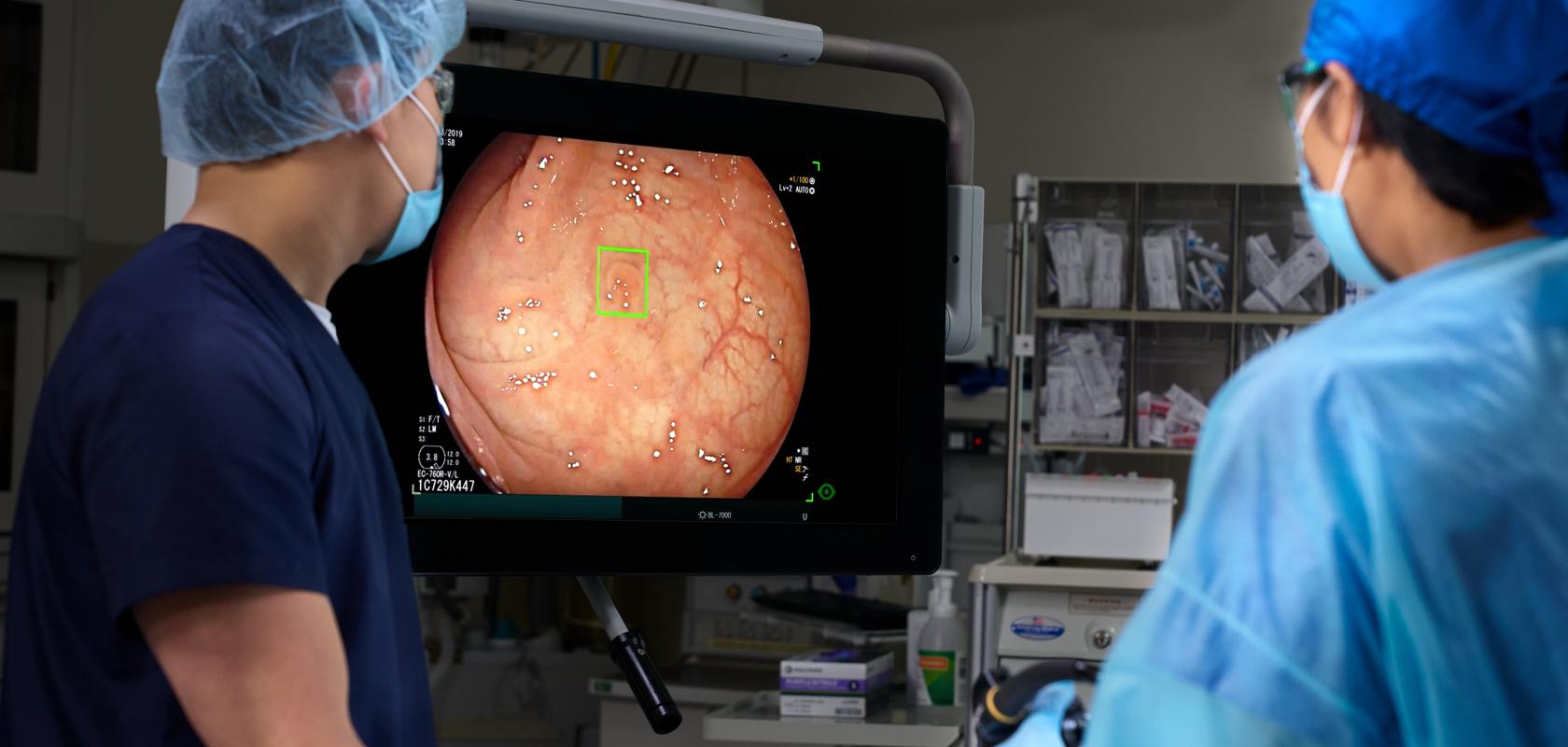Doctors in the UK will continue to use AI-enabled endoscope technology following a successful trial that aimed to improve the early detection of bowel cancer.
The trial, which involved 2,032 patients from 10 centres around the UK, saw South Tyneside and Sunderland NHS Foundation Trust (STSFT) use a computer-aided endoscope system from Medtronic during colonoscopies.
The GI Genius AI system combines AI with high-definition imaging from standard white-light endoscopy. During the trial, it identified at least one adenoma – a bowel lesion that could become cancerous – in an extra eight out of 100 people. This included small or flat polyps, which are often missed by the human eye.
Medtronic received £2.5 million of UK government funding to participate in the trial via the AI in Health and Care Awards, a collaboration between NHS AI Lab, the Accelerated Access Collaborative and the National Institute for Health and Care Research, which provides funding to accelerate the testing and deployment of the most promising AI technologies.
According to Medtronic, GI Genius can be integrated into current hospital department set ups; the intelligent endoscopy module can be added to existing endoscopy towers. “The system is compatible with endoscopy video processors that feature SDI or HD-SDI output ports,” said Oded Cojocaru from Medtronic.
“The AI overlays graphical markers (green squares) on real-time video without altering the video stream itself.”
Combining optical technology with AI
As AI increasingly is being used alongside optical systems, it is crucial to maintain the integrity and quality of the visual data captured by the optics, said Cojocaru, ensuring that the AI can accurately process and analyse it. “The system has to minimise any delay or distortion in video processing in order to provide real-time detection,” Cojocaru told Electro Optics.
The AI algorithms also have to be trained on high-quality, representative datasets to identify lesions effectively, Cojocaru added.
Collaboration between optics/photonics and medical device firms
Medtronic works with optics and photonics companies on medical device development, which typically involves ensuring that it meets stringent requirements in terms of performance, safety, and reliability. “Other considerations, especially for imaging-related products/components, include maintaining compatibility with existing medical equipment, maintaining high image quality, and testing & validation phases to optimise the end product,” said Cojocaru.
Expanding AI medical applications
It is hoped that the real-time processing and AI capabilities developed for GI Genius have the potential to significantly impact future products. “The hardware optimised for real-time AI in imaging and video-based procedures can serve as a platform for additional AI applications,” Cojocaru said.
“Our AI Access platform allows for the integration of various AI algorithms on the same (GI Genius) hardware,” Cojocaru continued. “This flexibility could maximise the utility of existing hardware and accelerate the development of new AI applications across different medical fields and procedures, while maintaining the high standards of real-time performance essential to clinical applications.”


